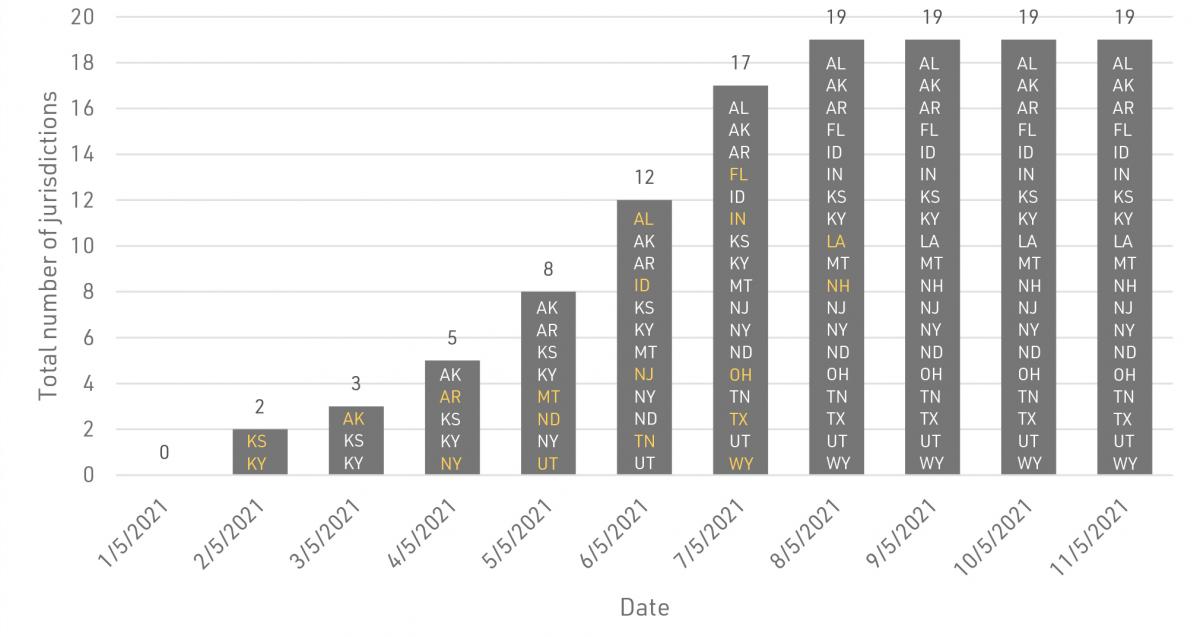There are now 19 states with laws limiting governors’ or state health officials’ authority during the COVID-19 pandemic or other emergencies, according to newly updated data published today on LawAtlas.org. This is an increase from 11 states in June 2021.
Legislators in 48 jurisdictions — all but Iowa, South Dakota, and the District of Columbia — have introduced bills in 2021 to limit state executive authority in a public health emergency. Between January 1, 2021 and November 5, 2021, one or more of these bills were enacted into law and became effective in 19 states, according to the data released today.

The updated data were produced using the Center’s sentinel surveillance method for rapid surveillance and legal data creation of emerging laws and policies. Learn more about the novel sentinel surveillance of emerging laws and policies process.
States have taken a variety of approaches to curbing public health authority. As of November 5, 2021:
- Fifteen states have limited both the then-governor’s authority and the authority of a state health agency or official: Alabama, Arkansas, Florida, Idaho, Indiana, Kansas, Kentucky, Montana, New Hampshire, New Jersey, North Dakota, Ohio, Tennessee, Utah, and Wyoming.
- Eleven states – Alabama, Arkansas, Florida, Indiana, Kansas, Montana, New Hampshire, Ohio, Tennessee, Utah, and Wyoming – limited the governor’s authority, the authority of a state health agency or official, and the authority of a local health agency or official.
- Some laws limit the duration of a state of emergency or limit emergency orders to a specific number of days (as in Arkansas for example). Others require elected officials to approve health officer actions (as in North Dakota), or prohibit the governor or health officials from requiring vaccination (as in Tennessee).
Notably, Kansas was the first state in 2021 to pass a law limiting public health emergency orders. Kansas continues to be the only state to allow counties to issue a local order that is less stringent than a governor’s order. The Kansas law also provides that such a local order will operate in the county in lieu of the governor’s executive order.
Utah is the only state that limited both state and local health officials in all the following areas: restricting the ability to issue emergency orders, limiting the duration of emergency orders, restricting the scope of emergency orders, and establishing that emergency orders may be terminated by legislature or another entity.
Support for the data and the development of the sentinel surveillance of emerging laws and policies process was provided by the Robert Wood Johnson Foundation, and research for the dataset was provided by the Association of State and Territorial Health Officials.
Contact
Bethany Saxon
Center for Public Health Law Research
Tel. 215-204-2134
bethany.saxon@temple.edu
